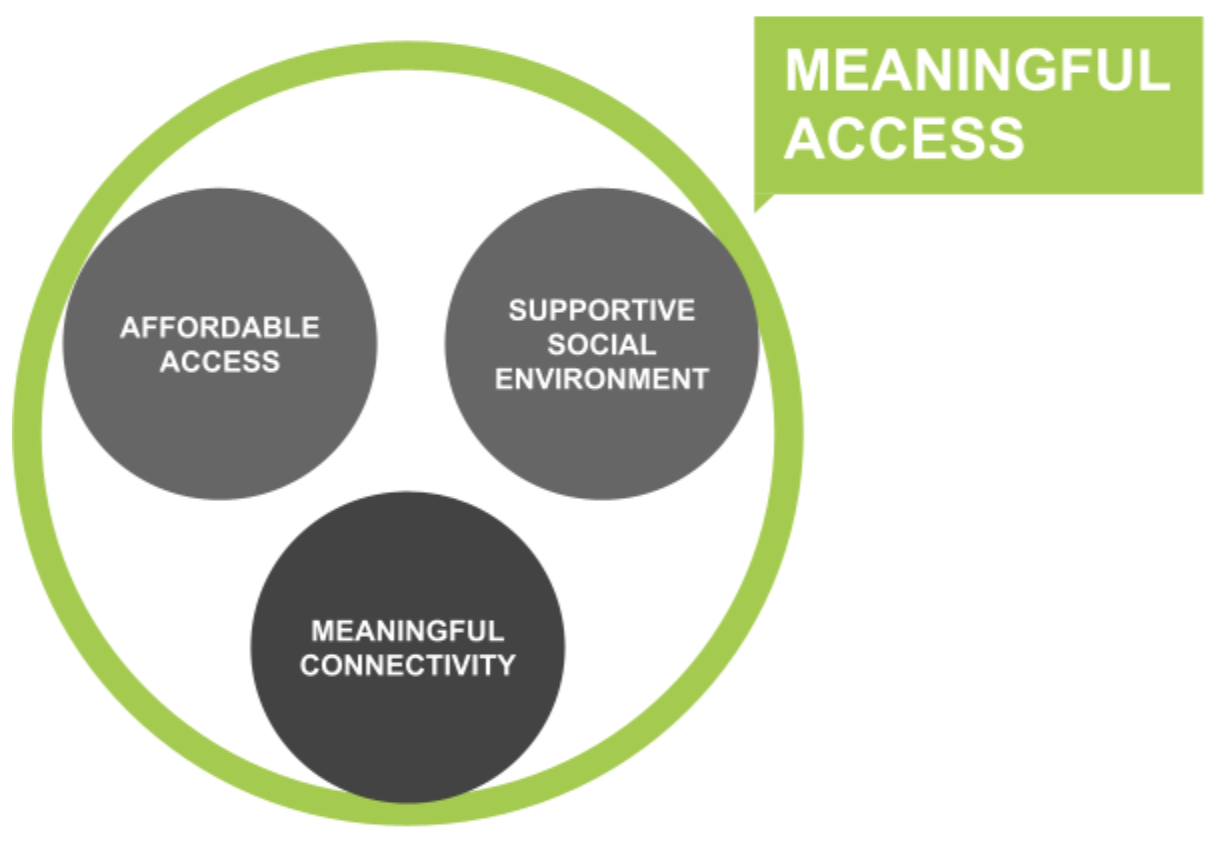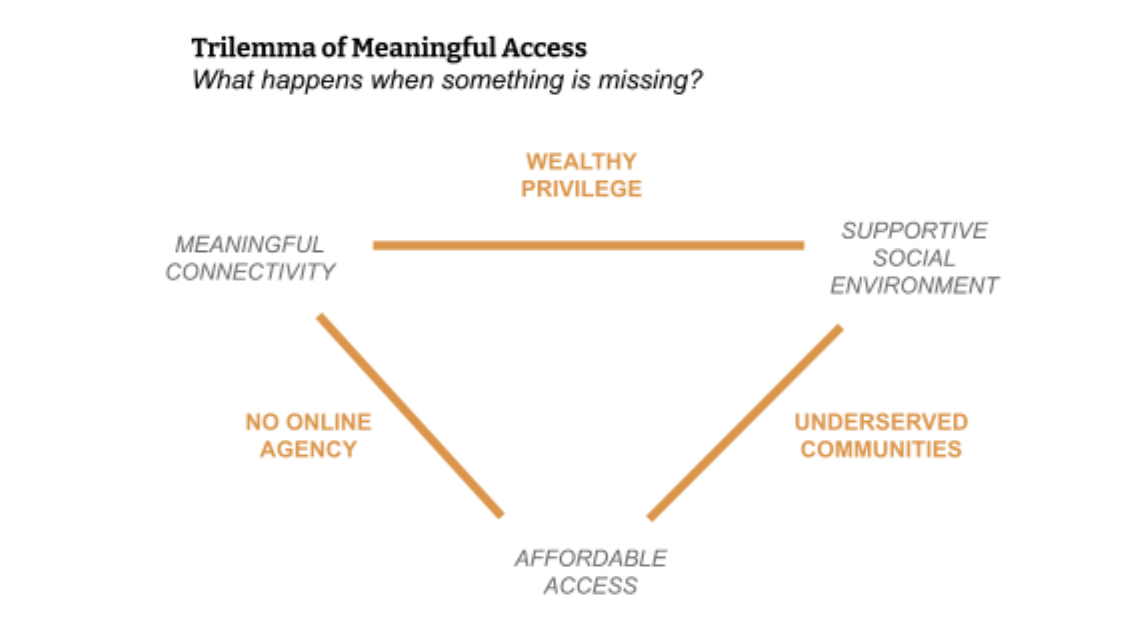This article was written by Sonia Jorge, A4AI Executive Director and Teddy Woodhouse, Senior Research Manager, A4AI.
A4AI has worked towards the goal of universal internet access by focusing on the cost of connectivity. However, through this work, we commonly revisit the question of what does ‘universal internet access’ mean, and how do we get there?
This question has led us to develop a theory of meaningful internet access. This theory blends together the work that A4AI has achieved over the past few years in terms of affordability and meaningful connectivity and also scopes out what remains on the horizon for us to understand further.

The theory of meaningful access brings together three pillars: affordability, meaningful connectivity, and a supportive social environment. That is to say, someone has meaningful access when they have affordable access to an internet connection of sufficient quality to be meaningful and they are able to use that connection in a supportive social environment that allows them to apply their full agency in how the internet affects their life. Binding these three pillars together emphasises the importance of each but also draws out the limitations of failing to consider all three of them.
Affordability is crucial to the universality of internet access. Cost has repeatedly been cited throughout the world as one of the leading reasons why people don’t use the internet. However, as the cost of internet access has gradually fallen over time, internet use has risen across the globe. Affordability of this technology is crucial to ensuring that internet access does not become a means by which income inequality translates into informational or participatory inequalities as well.
Beyond just getting people online, the quality of that connection remains an important factor.To that end, we developed the Meaningful Connectivity framework to set in place four essential policy targets. It emphasises 4G-like speeds, smartphone ownership, daily use, and an unlimited broadband connection at home, work, or a place of study as the key factors for measuring when internet access transforms from just being a source of information to a tool for personal development and social participation.
Finally, beyond the costs of connectivity and the infrastructure, users need a supporting social environment to obtain the full range of benefits of internet access. This environment includes things such as human rights, education and digital skills, and local and relevant content. All of these factor into if and how someone uses the internet and the kind of experiences they have once online. They are also all, crucially, determined not at the individual level but by the broader social environment in which we live.
This third pillar requires further research to define and scope the essential characteristics that should translate into policy targets. However, as a starting point, this theory of meaningful access illustrates what is missing when we fail to adopt a holistic perspective.

This theory of meaningful access is important because effective and measurable targets are important for good broadband policy. Just as A4AI has championed our affordability targets for the cost of entry-level broadband at no more than 2% of the average monthly income (then later adopted by institutions such as the UN Broadband Commission and ECOWAS) and developed the methodology behind the Meaningful Connectivity framework, this theory leads us to initial starting points for the policy targets that will be crucial to understand the social environment in which we access the internet and where policy can affect that environment. This builds on efforts for a universal meaningful connectivity measurement framework (forthcoming) led by ITU and in collaboration with stakeholders of the Roundtable on Global Connectivity of the UN-SG Digital Cooperation (including A4AI among others), the UNESCO’s internet universality indicators, the Inclusive Internet Index and the work of the IGF Policy Network on Meaningful Access.
